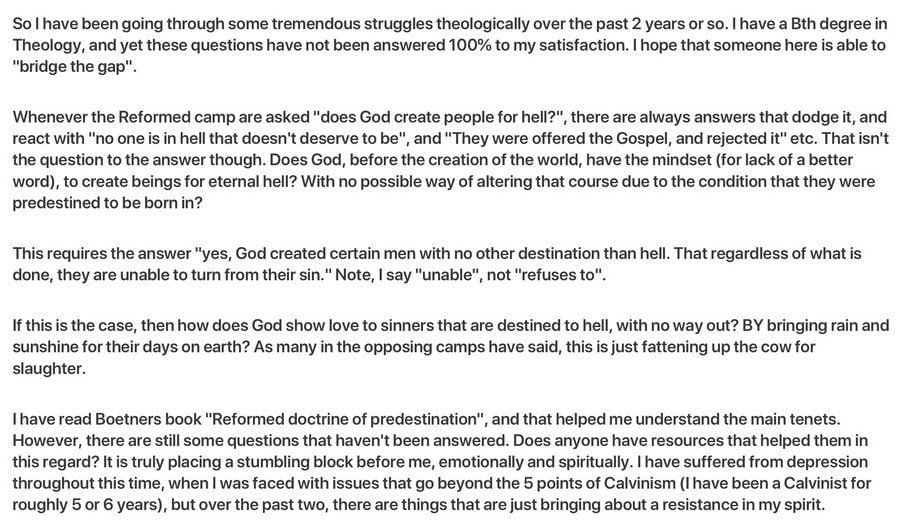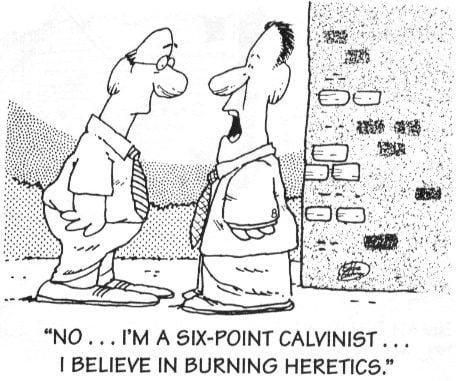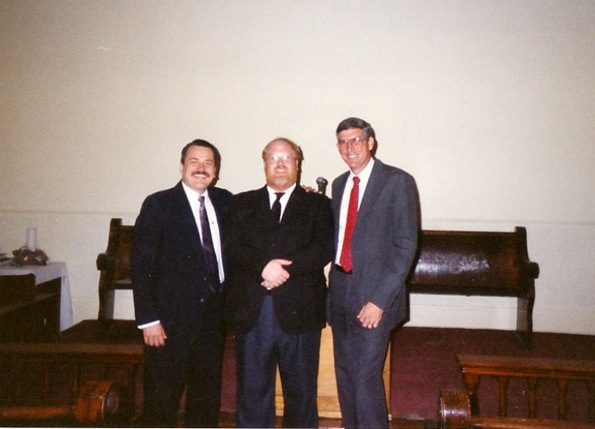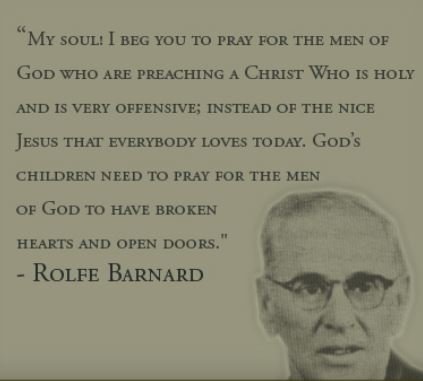
Yesterday, I received an email from a Calvinistic Evangelical named Bob (all spelling, grammar, and punctuation in the original):
Bruce, I spent 40 years as an Armenian before God saved me and regenerated me.
I came off a ventilator after saying my goodbyes. I wasn’t supposed to live.My first thought was: What does God want us to know and understand?
I began listening to doctrine lessons and was converted to Augustin and predestination, Gods sovereignty and Election.
I’ve been in 4 yrs of doctrine and church history studies.
I’m a Reformed Baptist 2LBCF confessional covenental believer now.
It’s a real thing.
Reconsider my friend!
For readers unfamiliar with Calvinism, Calvinists adhere to what is broadly called the five points of Calvinism or the doctrines of grace.
The TULIP acronym represents the five points:
T= total depravity
U= unconditional election
L= limited atonement (particular atonement)
I= irresistible grace
P= perseverance of the saints (preservation of saints)
Calvin’s five points were a response to the claims of Jacob Arminius. Arminians generally believe:
Classical Arminianism is a protestant theological view that asserts God’s prevenient grace for regeneration is universal and that the grace allowing regeneration and ongoing sanctification is irresistible.
Calvinism and Arminianism are incompatible with each other, though both theological schools appeal to the Bible as justification for their beliefs. Just remember, the Bible can be used to justify almost anything. Within Calvinism and Arminianism, there are various internecine battles over subtle, minor points of doctrine. Generally, Arminians consider Calvinists as fellow Christians, whereas Calvinists think Arminians believe a false gospel and are unsaved. Years ago, I co-pastored a Calvinistic church in Elmendorf, Texas. Tracts were circulating among the congregation that posited great Evangelical Christian preachers such as D.L. Moody, Charles Finney, and John Wesley were unsaved. I remember one discussion I had with a church member who believed these notable preachers were lost. I asked him, “Are you saying that the five points of Calvinism are the gospel; that someone must believe all five points to be saved?” The church member, with nary a thought, replied, YES! Of course, this position has all sorts of problems that I will perhaps address someday.
This brings me to Bob’s email. First, Bob seems unaware of the fact that I was a Calvinistic pastor for many years; that I ran in Reformed Baptist, Founder’s Group, and Sovereign Grace circles. I left the Independent Fundamentalist Baptist (IFB) church movement in the late 1980s, embracing Calvinism and its various theological peculiarities. During this time, an increasing number of IFB and Southern Baptist preachers were embracing Calvinism. This continues to this day. (Please see Why I Became a Calvinist — Part One, Why I Became a Calvinist — Part Two, Why I Became a Calvinist — Part Three, Why I Became a Calvinist — Part Four, Why I Became a Calvinist — Part Five, Why I Became a Calvinist — Part Six. Why I Became a Calvinist — Part Seven.)
As do many Evangelical Calvinists, Bob believed he was a false Arminian Christian for forty years; that it wasn’t until he heard the “true gospel” and God regenerated him and saved him that he became a True Christian. I remember struggling with whether I was a True Christian. After all, I was saved in an IFB church that thought Calvinism was heretical. Was I a false Christian? Eventually, I made sure I was a True Believer — Calvin-style.
Bob asks, “What does God want us to know and understand?
Bob answers this question with anecdotal stories from his own life:
- He began listening to doctrine lessons from notable Calvinistic preachers. I wonder if he listened to cassette tapes from Chapel Library, as I did decades ago. (Please see Short Stories: The Chapel Library Tape Lending Library
- He was converted to Augustinian predestination, the Sovereignty of God, and election.
- He is now a Reformed Baptist (Particular Baptist, Calvinistic Baptist, Sovereign Grace Baptist).
- He adheres to the 1689 London Baptist Confession of Faith, also known as the Second London Baptist Confession of Faith.
- He believes in covenant theology — the Baptist version, anyway.
Bob preaches the gospel of right beliefs. Believe these things and thou shalt live. Calvinism is the straight way and narrow gate that few people find, and Aminianism is the wide gate and broad way that leads most of humanity to eternal damnation. (Matthew 7:13-14)
Without evidence, Bob claims Calvinism is a real thing — real in the sense that it is the true gospel. Bob asks me to “reconsider.” Reconsider what, exactly? I know the theological claims of Calvinists inside and out. I am one of the few people who have read Calvin’s Institutes of the Christian Religion from cover to cover. To this day, my interpretation of the Bible skews towards Calvinism and reformed theology. That said, I now see how harmful Calvinistic theology can be, especially among Evangelicals. So, Bob shouldn’t expect me to return to Calvinism. Of course, since God’s grace is irresistible, if God wants me to be saved, I will be saved. If I am never saved, it is because I was not one of the elect — those chosen in Christ from before the foundation of the world.
Note that Bob did not share the gospel with me. He doesn’t mention the death, burial, and resurrection of Jesus one time. Why is that? Isn’t that the gospel that saves, and not The Gospel According to John Calvin?
Bruce Gerencser, 68, lives in rural Northwest Ohio with his wife of 47 years. He and his wife have six grown children and sixteen grandchildren. Bruce pastored Evangelical churches for twenty-five years in Ohio, Texas, and Michigan. Bruce left the ministry in 2005, and in 2008 he left Christianity. Bruce is now a humanist and an atheist.
Your comments are welcome and appreciated. All first-time comments are moderated. Please read the commenting rules before commenting.
You can email Bruce via the Contact Form.








